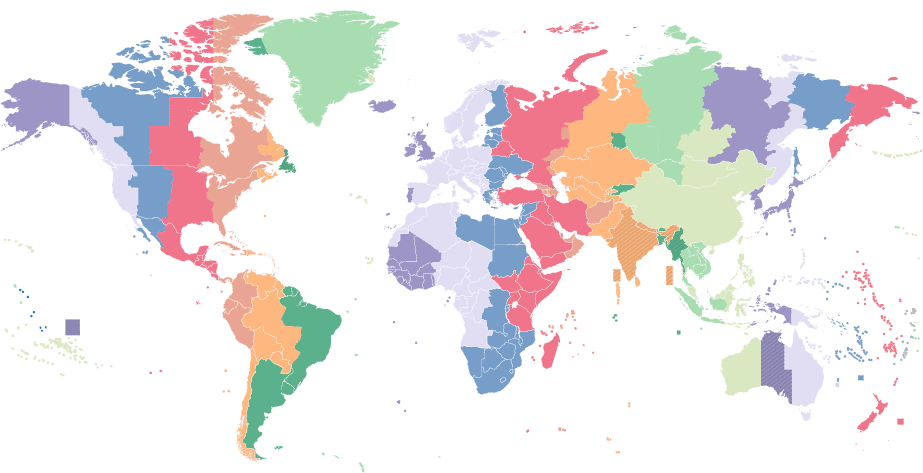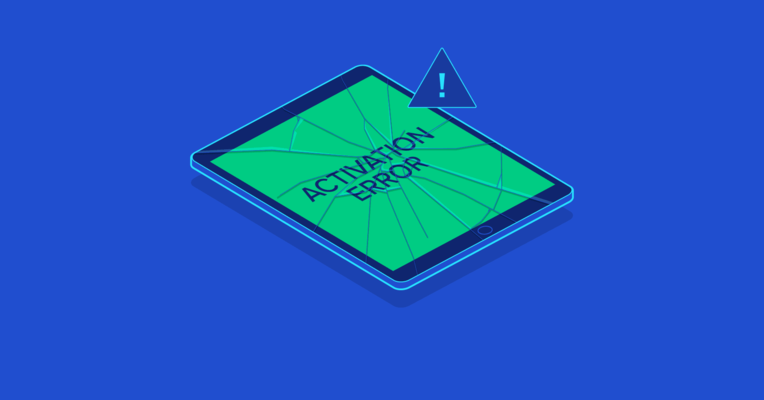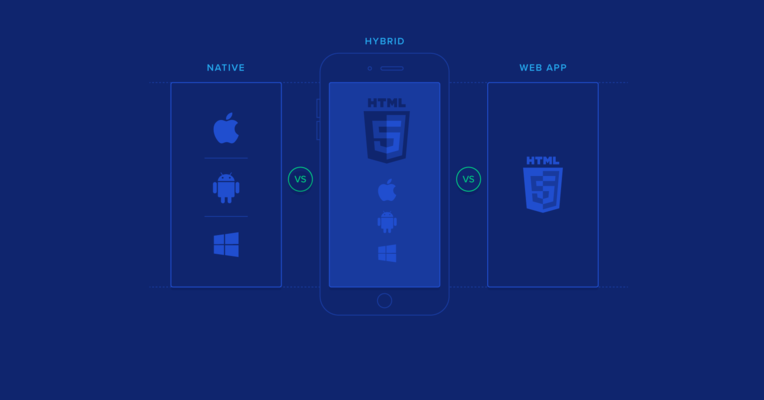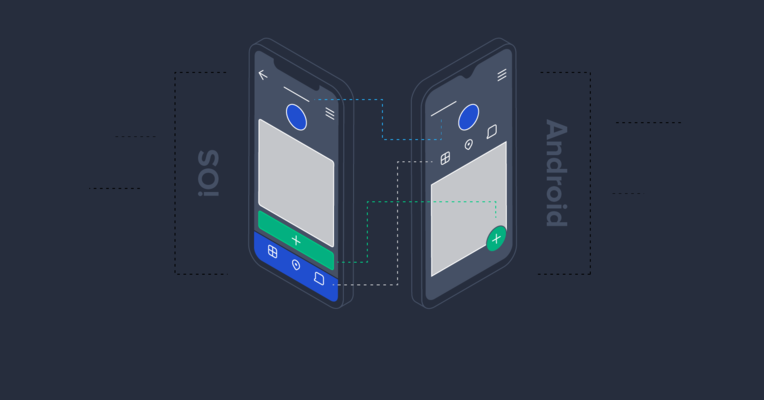Demand for App Store Developers Continues to Expand
As mobile usage dominates global internet activity, the business case for hiring skilled app developers has never been stronger. In 2024 alone, consumers spent $150 billion on in-app purchases, and the average user logged more than 3.5 hours per day in mobile applications, according to Sensor Tower’s 2025 State of Mobile Report. As mobile becomes the default interface for entertainment, commerce, and productivity, competition in the App Store and Google Play ecosystems continues to intensify.
Hiring app store developers—experts who specialize not just in building apps but in launching, optimizing, and scaling them on platform-specific marketplaces—has become a mission-critical task for startups and enterprises. These specialists offer a competitive advantage in today’s landscape of rapid mobile app development, where both performance and functionality must align with business goals. But finding the right developer is uniquely challenging. It’s not enough to understand code. These developers must also navigate compliance guidelines, optimize for discoverability, integrate monetization features, and support long-term growth through performance tuning and analytics.
Whether you’re working with freelancers or partnering with an app development company, it’s essential to align candidates with your project requirements and desired development process. This guide provides a step-by-step approach to hiring high-quality app store developers. You’ll learn what skills distinguish top talent, how to match candidates to your needs, how to write a compelling job description, and what interview questions will help you hire with confidence.
What Attributes Distinguish Quality App Store Developers From Others?
Building a functional mobile app is one thing, but launching one that succeeds in the App Store or Google Play is another. Many mobile developers can write code, but app store developers understand the nuances of launching, optimizing, and scaling within the strict and evolving ecosystems of mobile platforms.
The best app store developers are strategic builders who think beyond the interface. They understand store submission workflows, platform-specific compliance, metadata optimization, and performance post-launch. Rather than simply delivering code, they deliver market-ready products designed to meet both technical and business goals.
What separates top-tier talent from standard mobile engineers is their fluency across the entire app lifecycle. They know how to preempt rejection issues, optimize in-app monetization flows, and collaborate across design, product, and marketing teams to improve discoverability and retention. This level of insight makes them indispensable in high-stakes application development scenarios where timing, visibility, and user satisfaction are critical.
While an average mobile developer may focus solely on getting features shipped, an expert app store developer thinks holistically. They measure success not just in finished builds but in five-star reviews, seamless updates, and sustainable user growth. They are both implementers and product partners—a rare combination that drives long-term success in today’s mobile-first world.
Complementary Skills of Leading App Store Developers
Beyond foundational development knowledge, the best app store developers bring a suite of complementary skills that directly influence an app’s performance, discoverability, and maintainability:
Mobile Development Framework Expertise: Top candidates are fluent in native environments like Swift for iOS and Kotlin for Android, as well as cross-platform frameworks such as Flutter and React Native. They are experienced in using a wide array of programming languages to support scalable application development. They understand the trade-offs and can help teams choose the right approach for performance, speed, and cost.
App Store Lifecycle Management: Strong developers know how to manage beta testing, phased rollouts, and version updates through platforms like TestFlight and the Play Console. They minimize delays by proactively aligning builds with store requirements and guidelines.
In-app Purchase and Subscription Setup: Whether using StoreKit, RevenueCat, or Google Play Billing, experienced developers can build secure and flexible monetization systems. They manage sandbox testing environments, implement edge-case handling, and ensure accurate subscription tracking.
Crash Reporting and Performance Monitoring: Tools like Firebase Crashlytics or Sentry help developers proactively resolve issues. Top candidates don’t just log crashes—they triage them, track root causes, and adjust code to improve app stability and retention.
Analytics and Behavior Tracking: Leading developers integrate tools like Mixpanel, Amplitude, or Firebase Analytics to capture custom user events. This data powers smarter feature decisions and supports collaboration with product and marketing teams.
Design Collaboration and UI Implementation: Top app store developers translate design assets from Figma or Sketch into smooth, responsive interfaces that meet native design guidelines. They understand accessibility standards and create experiences optimized across devices—including iPhone, Android, and tablets.
CI/CD and Deployment Automation: Familiarity with pipelines through Fastlane, GitHub Actions, or Bitrise enables more frequent, stable deployments. Automation reduces manual errors and speeds up development cycles—especially valuable in Agile environments.
Security and Privacy Compliance: Experienced developers follow best practices for data handling and user consent. They build in compliance with data privacy frameworks like ATT, GDPR, and CCPA and ensure apps pass evolving review standards around tracking and user permissions.
Version Control and Cross-functional Teamwork: Strong candidates are adept with Git-based workflows and familiar with collaboration tools like GitHub, Jira, and Slack. They thrive in fast-moving teams where coordination with designers, QA, and PMs is essential. Their contributions often bridge gaps between software development and business needs, making them valuable team players across any development team.
How Can You Identify the Ideal App Store Developer for You?
Hiring the right app store developer is about aligning the developer’s experience and approach with your product stage, team composition, and business goals. Whether you’re building from scratch, optimizing an existing product, or scaling across platforms, a successful hire hinges on clarity about your project goals and who can deliver them.
When evaluating candidates, it’s important to look for a mix of technical experience, platform familiarity, and problem-solving ability. These qualities will help ensure your app not only meets technical standards but also delivers a smooth user experience.
Start With the Scope of Your App
The first step in identifying the right developer is defining the nature of your project. Is this a brand-new build, a refactor of a legacy app, or an effort to drive growth through updates and optimization?
If you’re starting from zero, look for developers with end-to-end mobile product experience. They should be comfortable owning everything from technical architecture and toolchain setup to collaborating with designers and submitting builds to the app stores. Ideal candidates will have launched apps independently or as technical leads on a cross-functional team and should be able to show published apps with performance metrics. Many experienced programmers in this space offer development services specifically tailored for startups looking to launch high-functionality products quickly.
If you’re improving an existing app, your needs may lean more toward optimization and maintenance. In this case, target candidates with a strong grasp of diagnostics and post-launch growth. These developers should be able to analyze crash logs, identify code inefficiencies, troubleshoot store rejection reasons, and suggest ASO (App Store Optimization) enhancements. They may not architect the entire app, but they should be able to work cleanly within an existing codebase and deliver measurable improvements.
Understanding pricing structures for this type of hire is also critical. Top-tier app store developers often cost more, but they reduce long-term risks and development cycles through better architecture and fewer reworks.
Match the Developer to Your Team’s Capabilities
Next, consider your internal resources. Do you have in-house designers, QA, or back-end developers? Or are you expecting your app store developer to operate independently across these areas?
For lean teams or solo projects, prioritize developers with full-stack familiarity: specialists who can not only build the client-side app but also integrate APIs, perform QA testing, and manage deployments via TestFlight or Play Console. In larger organizations, you may benefit from more specialized talent. A strong iOS developer could own Swift code while collaborating with dedicated designers and product managers. A Flutter expert might work in tandem with back-end engineers to deliver cross-platform features faster.
Hiring vetted developers through trusted networks can help reduce onboarding time and ensure alignment with your project management and delivery expectations.
Understand the Developer’s Level of Seniority
Not all app store developers operate at the same strategic depth. Determine whether your use case requires junior, mid-level, or senior talent:
-
Junior developers are best suited for executing clearly defined tasks under close guidance. They can implement UI components, fix bugs, or extend small features, but they typically lack exposure to submission workflows, monetization, or compliance. They’re ideal for internal tools or MVP experiments with low complexity.
-
Mid-level developers can own complete features or integrations from design to release. They understand store policies, can integrate third-party SDKs (analytics, ads, or payments), and know how to debug issues independently. They’re often the right fit for small- to mid-scale apps with well-defined roadmaps.
-
Senior developers are product-minded engineers who operate at the intersection of strategy and execution. They can architect scalable systems, mitigate launch risks, and spot UX, monetization, or retention issues before they arise. They collaborate cross-functionally with marketing and design, foresee platform changes, and drive iterative growth.
Clarify Your Primary Hiring Need
Before you write a job description or review applications, define the primary challenge your app or team is facing. Is your current app being rejected due to privacy issues? Are your in-app purchases failing? Are you struggling with discoverability or crash frequency?
Your biggest pain point should dictate what type of developer you need:
- If you’re struggling with monetization, look for developers who’ve implemented subscriptions or ads and understand StoreKit, Google Play Billing, and related frameworks.
- If you’re facing compliance issues, hire someone with experience navigating app store rejections who can explain how they approach privacy permissions, tracking disclosures, or content guidelines.
- If retention or discoverability is low, seek a developer who has collaborated on ASO and analytics implementation and understands how technical choices influence engagement.
What’s the difference between an app store developer and a general mobile developer?
A general mobile developer may have strong skills in building interfaces, integrating APIs, or managing codebases, but may lack experience navigating the business and compliance landscape of mobile platforms. App store developers bring specialized knowledge of Apple and Google’s shifting guidelines, submission protocols, metadata optimization, and in-app monetization best practices. They bridge development with go-to-market readiness, making them uniquely valuable for production-ready or revenue-generating apps.
Native developers—those specializing in Swift/Objective-C (iOS) or Kotlin/Java (Android)—are ideal when performance, user experience, and OS-specific features are top priorities. They can better align your app with platform conventions and updates, which often translates into smoother UI, better app store reviews, and fewer technical surprises. On the other hand, cross-platform developers (using tools like Flutter or React Native) are a smart choice for MVPs, budget-conscious builds, or when code parity across platforms is essential. Just ensure they understand the limits of abstraction layers and can address platform-specific quirks when needed.
How to Write an App Store Developer Job Description for Your Project
A clear, targeted job description saves time and attracts the right candidates. Start with a summary of your app’s purpose, audience, and current status. Is this a brand-new concept, an MVP nearing completion, or a live product that needs enhancement? Then define what you need help with: Are you looking to launch, optimize, or scale?
Specify the platforms involved, preferred frameworks or SDKs, and whether you’re seeking native or cross-platform experience. For example, indicate if the developer should be proficient in Swift or Kotlin for native builds, or if you require experience with Flutter, React Native, or tools like StoreKit, Firebase, or RevenueCat. Highlight critical needs such as in-app purchase integration, crash reporting, ASO support, or handling privacy compliance like ATT or GDPR.
Next, outline any collaboration expectations—for example, whether the developer will work alongside a designer, back-end developer, or marketing team—and name the tools your team uses, such as GitHub, Jira, Slack, or TestFlight. The job description should also clarify whether the developer will need to manage deployments or QA.
Finally, indicate role logistics: Is this full-time, part-time, or freelance? Is the role remote? Are time zone overlaps required for collaboration? The more context you give, the better the fit you’ll attract. Well-written job descriptions filter out mismatched candidates and help top-tier talent understand how they can contribute to your app’s success.
What Are the Most Important App Store Developer Interview Questions?
Once you’ve identified promising candidates, the interview process should go beyond surface-level experience and dig into how they think about mobile development, store compliance, performance, and collaboration. Here are some questions to ask, along with the qualities you should listen for in their responses.
Walk me through an app you helped launch. What was your role, and what challenges did you face?
Strong candidates will walk you through the full app lifecycle, not just isolated code contributions. Listen for signs of ownership: Did they lead or coordinate efforts around store submission, metadata optimization, or performance benchmarks? They should describe how they worked across functions like design and product, what technical hurdles they encountered (e.g., performance bottlenecks, last-minute guideline changes), and how they measured success post-launch. Ideally, they will name specific user engagement metrics or revenue outcomes that their work influenced.
How do you stay updated on Apple and Google store policy changes?
This question reveals how disciplined and proactive the candidate is in staying compliant with evolving platform standards. Listen for answers that mention regular habits, such as reading Apple’s developer release notes, following Google Play policy updates, subscribing to platform-specific newsletters, or participating in forums like Stack Overflow or Reddit. Strong developers may also discuss how they apply these updates through checklists or internal documentation. Be wary of vague or overly general answers, as they suggest a lack of process rigor that could lead to rejected builds or compliance risks.
How do you implement and test in-app purchases or subscriptions?
Top developers should speak confidently about the technical and operational aspects of in-app monetization. They should describe using frameworks like StoreKit (for iOS) or Google Play Billing (for Android), setting up sandbox environments for testing, and handling subscription edge cases such as failed renewals or territory-specific pricing. Expect mention of integrating analytics to monitor conversion funnels or churn, and of working with QA to ensure all monetization flows function under varied user conditions. Their approach should balance user experience, security, and store compliance.
What’s your approach to crash monitoring and post-launch support?
An ideal candidate will see post-launch support as a core part of their responsibility, not an afterthought. They should describe using tools like Crashlytics, Firebase Performance Monitoring, or Sentry to track issues in real time. More importantly, they should explain how they triage crashes, analyze trends, and prioritize fixes, balancing quick patches with long-term codebase health. Candidates who talk about building feedback loops into sprint planning or collaborating with QA to validate fixes will be more effective at sustaining app stability and retention.
Have you ever had an app rejected from the App Store or Play Store? How did you resolve it?
Rejections happen even to experienced developers, so you want someone who can respond with clarity and accountability. The candidate should explain the specific reason for rejection (e.g., privacy permissions, unclear content, payment setup), what steps they took to resolve it, and how they updated their process to prevent future issues. Their response should show problem-solving under pressure, a thorough understanding of platform guidelines, and a mindset geared toward continuous improvement.
Why Do Companies Hire App Store Developers?
App store developers help companies do more than build functional apps—they help create successful, high-performing mobile products that drive measurable business outcomes. They know how to turn code into conversion and prototypes into scalable, revenue-generating tools. With deep knowledge of Apple and Google ecosystems, these developers improve speed to market, ensure policy compliance, and optimize user acquisition and monetization, all while collaborating with product and design teams.
Hiring a skilled developer can mean the difference between launching a quiet app and scaling a top-ranked platform. By following this guide, you can pinpoint the right talent for your project, whether you need to go to market fast, fix a struggling app, or scale your mobile presence sustainably.



























